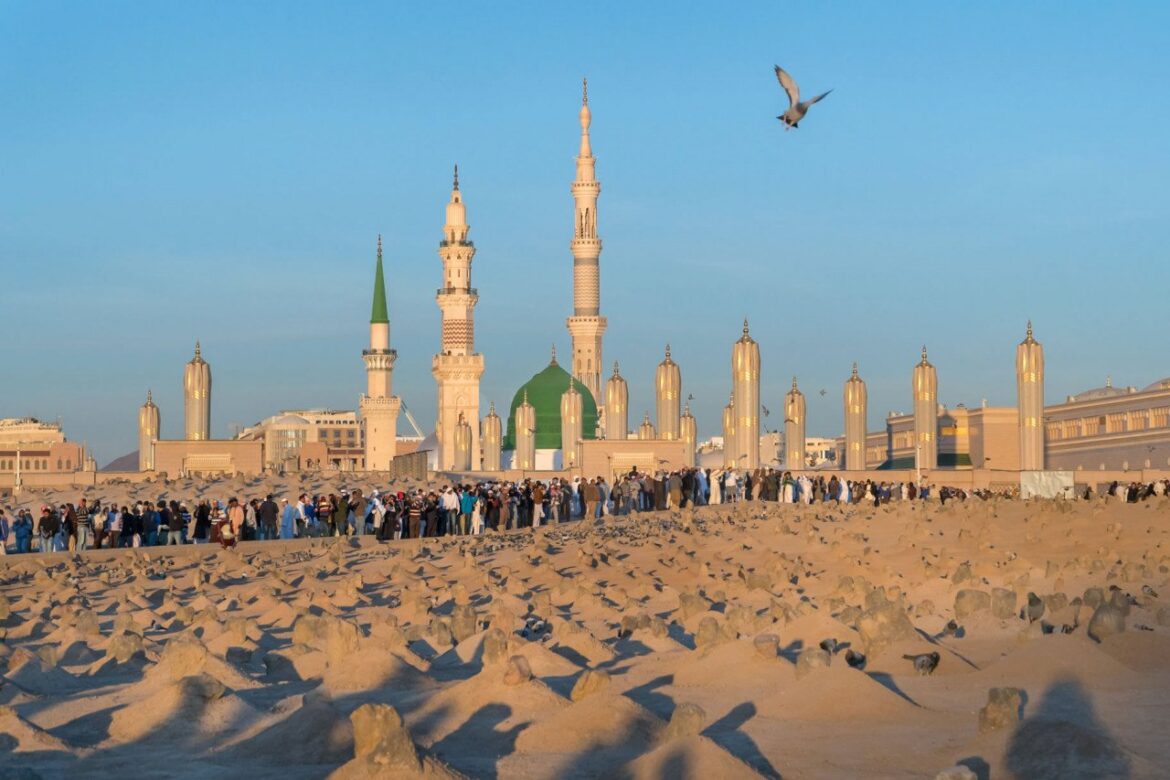By Desmond Nleya, Daily Times
Every year, the United Arab Emirates, alongside much of the Muslim world, marks the commemoration of the birth of Prophet Muhammad (peace be upon him) on the 12th of Rabi’ Al-Awwal in the Islamic Hijri calendar. This day, widely known as Mawlid Al-Nabi Al-Sharif, is not only a public holiday but also a significant religious occasion that invites reflection on the Prophet’s life, teachings, and enduring influence.
This year the Prophet will be celebrated on Friday 5 September.
The practice of commemorating the Prophet’s birthday did not begin during his lifetime nor immediately after his passing. Rather, historical sources trace its origins to the Fatimid dynasty in 10th–11th century Egypt. The Fatimids, who ruled from Cairo, institutionalized Mawlid celebrations as part of their broader religious and political traditions. The event was initially marked with sermons, Qur’anic recitations, poetry, and public feasts.
By the 12th century, Mawlid observances had spread across the Muslim world, gaining prominence in regions such as Syria, North Africa, and later South Asia. In particular, Sultan Al-Muzaffar of Erbil (in present-day Iraq) is credited with formalizing grand public celebrations that included lectures on the Prophet’s life, feeding the poor, and gatherings of scholars. Over time, the commemoration became embedded in the cultural and religious practices of Muslim communities, though the manner of observance varied from region to region.
Prophet Muhammad (PBUH) was born in 570 CE in Makkah, an event Muslims view as a turning point in human history. This year is remembered in Islamic history as the “Year of the Elephant,” when the Abyssinian ruler Abraha attempted to attack the Kaaba. Muhammad’s birth was seen by later Muslim generations as providential, symbolizing hope and divine mercy at a time of moral, social, and political decline in Arabia.
His life, message, and example — as a prophet, statesman, and moral guide — transformed not only Arabia but also laid the foundation for a global civilization. Commemorating his birth thus became, for many Muslims, a way of keeping his memory alive and transmitting his example to future generations.
Rabi’ Al-Awwal, the month in which the Prophet was both born and later passed away (in 632 CE), holds a unique place in the Islamic calendar. The observance of Mawlid provides a focal point for Muslims to engage with the Seerah (biography of the Prophet), revisit the Qur’an and Hadith, and reflect upon the moral and spiritual dimensions of his teachings.
While it is not among the prescribed religious obligations of Islam, the Mawlid serves as a cultural and devotional occasion. For many communities, it represents a moment to strengthen collective identity, transmit religious knowledge, and reaffirm the values of compassion, justice, and unity embodied by the Prophet.
Throughout history, Muslim scholars have debated the legitimacy of celebrating the Prophet’s birthday. Some classical scholars such as Ibn Taymiyyah critiqued the practice, arguing that it lacked precedent in the earliest generations of Islam. Others, however, defended it as a permissible bid‘ah hasanah (commendable innovation), so long as it was observed with piety and without extravagance. Leading scholars like Imam Al-Suyuti highlighted its spiritual benefits, noting that gatherings to remember the Prophet could inspire love, knowledge, and adherence to his example.
This debate reflects the dynamism of Islamic intellectual history, where diverse perspectives coexisted across different times and regions. Today, the Mawlid is observed widely, though often with variations — some communities holding grand public festivals, others preferring modest gatherings for study and prayer.
In the UAE, Mawlid Al-Nabi is observed as a national holiday that blends reverence for Islamic heritage with the country’s ethos of moderation and tolerance. While celebrations are not marked by grand spectacles, mosques and cultural institutions often organize lectures, recitations, and discussions centered on the Prophet’s life and message. The holiday offers residents time for reflection, family gatherings, and spiritual renewal.
Importantly, in a nation that hosts a diversity of cultures and faiths, commemorating the Prophet’s birthday underscores the UAE’s commitment to preserving Islamic traditions while fostering harmony in a multicultural society.
The celebration of Prophet Muhammad’s (PBUH) birthday is both historical and contemporary: it emerged centuries after his passing, yet it remains deeply relevant today. Its significance lies not in ritualistic observance, but in the opportunity it provides Muslims to reconnect with the Prophet’s example — his mercy, justice, humility, and devotion to God.
For Muslims in the UAE and across the globe, Mawlid Al-Nabi is not merely a date on the calendar but a living reminder that the Prophet’s legacy continues to guide, inspire, and unite believers in a rapidly changing world.


